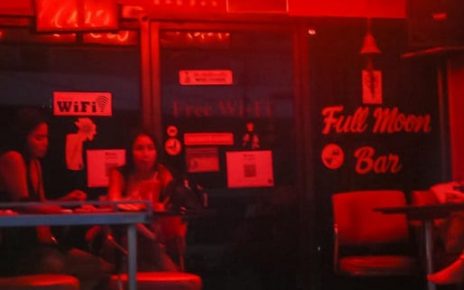The Thai Ministry of Public Health will be collaborating with the Ministry of Environment and its Department of National Parks to closely inspect Chatuchak animal market. It has been proven that pathogens from animals sold at these types of markets are the source of previous viruses that have caused pandemics.
- Commercially-traded animals can carry pathogens for which people or other animals have no immune response.
- SARS jumped to a human from a civet cat that was infected by a bat. Mink farms were discovered last year in several countries to carry a coronavirus. Pangolins are another animal that has been recently found to carry a coronavirus.
- W.H.O. investigation team sent to Wuhan said markets like Chatuchak can transmit deadly viruses and could have even been the origin of COVID-19.
Freeland applauds the Thai Ministry of Public Health for their statement today during a public, Facebook Live press conference in Bangkok, in which they referenced a Monday news report supported by Freeland about Chatuchak market and acknowledged that wildlife animal markets and trade may endanger public health. The Ministry spokesperson summarized what a Danish member of the W.H.O. investigation team sent to Wuhan told the Danish newspaper Politiken, namely that markets like Chatuchak can transmit deadly viruses and could have even been the origin of COVID-19.
The Thai Ministry of Public Health is now going to collaborate with the Ministry of Environment and its Department of National Parks to closely inspect Chatuchak animal market, and to simultaneously roll out a joint plan to increase protection of wildlife and stop trade of wild animals in markets.
“We applaud this approach with cautious optimism,” said Freeland Founder, Steven Galster who provided information to Politiken for their stories on Chatuchak, while accompanying its reporter to the market on multiple occasions to document the conditions there. “Last time the government responded to media exposures … last March by going to the market, spraying it down, handing out leaflets, then letting it reopen. That did not help.
“But it appears that this time, higher-level and cross-agency attention on this subject from the Thai Government, along with this W.H.O. rep’s express concern, may lead to more solid results. We want Thailand to end its commercial trade in wild animals, in which case this country would become a world leader in the so-called ‘One Health’ approach, which combines protection of people, animals and ecosystems as the best way to prevent pandemics.” Freeland is a member of the global “EndPandemics” campaign.
Markets are “Ticking Time Bombs”
Southeast Asia has historically supplied much of China’s wildlife trade. Due to low (and often depleted) populations in China of commercially valuable species in demand there, Chinese breeders and commercial outlets have typically relied on importing animals from outside the country to maintain adequate stock and genetic diversity. Imported species would either be shipped or flown straight into China, or in many cases be sourced in, or transported through, Southeast Asia.
For example, pangolins range through parts of Asia and Africa, are nearly depleted in China. Their bodies or body parts have been trafficked from Southeast Asia and Africa through Malaysia, Thailand, Laos, Cambodia, Hong Kong, and Vietnam into China.
Commercially traded animals can carry pathogens for which people or other animals have no immune response, and those pathogens can be passed in a number of ways, whether the animal is traded legally or illegally.
For example, zebras legally imported 3 into Thailand in 2019 carried a midge that jumped to local horses, causing African Horse Sickness and a 90%+ mortality rate, resulting in over 600 horse deaths. Some animals being sold in China and Southeast Asian are bred for commercial sale as meat and medicine, while others as exotic pets. Some are sold as both, and some for additional purposes. Civets, for example, are sold as pets, coffee bean enhancers (through their feces), perfume gland producers, and meat.
Some of these animals are especially susceptible to viruses hosted by bats, including Rabies, Ebola, and Coronavirus. These animals include members of the Mustelide and Viverridae families, featuring mink, badgers, polecats, mongoose, civets, martens, and more.
SARS jumped to a human from a civet cat that was infected by a bat. Mink farms were discovered last year in several countries to carry a coronavirus. Pangolins are another animal that has been recently found to carry a coronavirus.
Freeland’s survey shows that all of these animals –and others that are susceptible to deadly viruses– are still being commercially traded in and through Southeast Asia. Furthermore, the Freeland survey found that a significant diversity of wild and exotic birds, potential carriers of H5N1 and other strains of “Bird Flu”, are still being mixed with domesticated birds, stuffed in cages and sold in cramped areas in some markets.
Portions of wildlife being traded from Southeast Asia to China –in legal, illegal, whole body, and derivative form— get sold within Southeast Asian countries that host their own conventional and online commercial wildlife markets targeting local and foreign consumers. Examples include markets and outlets in Jakarta, Bangkok, parts of Malaysia, Vietnam, Laos, and Myanmar.
Bangkok’s Chatuchak market is the country’s –if not the region’s— largest hub for exotic animal sales. According to Freeland’s new survey, which included a spot check just two days ago, one can still purchase at this market, among many other species: ferrets; polecats; coati; civets; mongoose; meerkats; raccoons; capybara; scarlet macaws; African gray parrots; cougars; dozens of species of turtles from around the world; over 100 species of snakes; African and Asian land tortoises; over a dozen species of small, medium, and large size rodents; and exotic lizards from Latin America, Africa, and Australia. Some dealers offered zebras, baby hippos, and kangaroo. They offered to sell breeding pairs for commercial purposes, and they did not request proof of a breeding license.
Freeland has campaigned 19 years to close Chatuchak’s animal market section, and other wildlife markets in Asia, and for authorities to clamp down on illicit wildlife trade to prevent extinction, preserve biodiversity, and avert zoonotic outbreaks. Our “Sold Out”, “iTHINK”, and recent partnership “EndPandemics” campaigns have specifically included calls to close the animal market at Chatuchak, pointing to signs of illegality, inhumane conditions, threat to species from unsustainable trade, and threats to people.
In light of COVID-19, Freeland appealed in March 2020 to several Thai Ministers to close Chatuchak Animal Market as a matter of public health and international security. Freeland’s media campaign to expose illegality and zoonotic spillover risk at Chatuchak Animal Market resulted in the Thai Department of National Parks conducting a cleanup operation there in late March. Officers patrolled animal stalls, asking for sales and breeding licenses, while a virus disinfectant team sprayed the entire animal section. The market was then reopened within two months and remains in business.
“We remain extremely concerned that Chatuchak animal market and other such markets –large, small, and online– in the region are still operating,” said Freeland Founder Steven Galster. “We are also concerned that criminal suspects operating major wildlife trafficking supply chains have not been put out of business.
“Furthermore, there remains an abundance of wildlife breeding farms (some registered as zoos), as well as online wildlife trading that continue to operate in this region. It is probable that COVID-19 jumped to a person from a commercially traded animal. It is possible that such an animal was being sold in a wildlife market in Southeast Asia, like Chatuchak, or from an online platform, or from a breeding farm. It could take years to figure out the exact source. But why, in the meantime, are we allowing these commercial wild animal platforms to continue operating if we know they pose a risk of a deadly spillover? Surely we do not want to see a new outbreak?”
In reference to Thailand, Galster added: “We remain firm believers that Thailand can convert from wildlife trade ‘gateway’ to a ‘wildlife guardian’, and become a world leader in pandemic prevention. Authorities have done a great job flattening the curve here, but they have left this one door wide open –their wildlife trade.”




